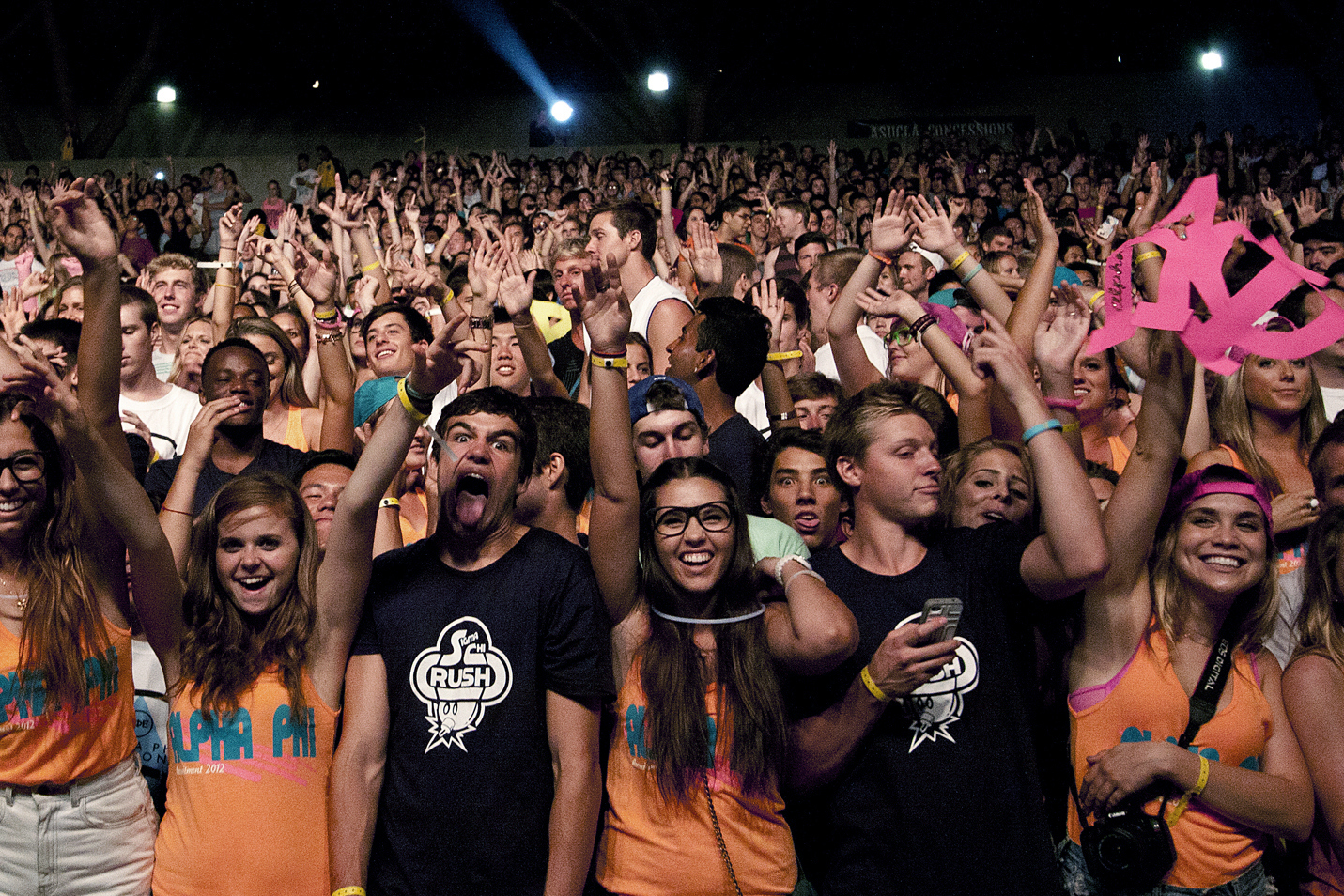Kristina Iliopoulos: Universal fee, lottery system best way to keep Bruin Bash affordable

(Daily Bruin file photo)
By Kristina Iliopoulos
Sept. 29, 2016 11:30 p.m.
Putting on a concert is hard work, and as any rap enthusiast can tell you, it’s all about the Benjamins.
Bruin Bash, a concert organized by the Undergraduate Students Association Council’s Campus Events Commision, takes place in Pauley Pavilion every year during zero week’s welcome activities. The concert usually includes some big names, and undergraduates have enjoyed Bruin Bash performances from luminaries like Childish Gambino, Tyga and Chance the Rapper.
They usually make for great shows, but bringing in top talent requires money. Since the Bruin Bash referendum passed in 2013, every undergraduate student pays a quarterly student fee to fund the event. And since there’s usually more students who want to attend the concert than there are open seats in Pauley, they must enter a lottery system to win the concert tickets.
The issue is clear: Some students who really want to win tickets can emerge from the lottery empty-handed. No doubt it can be a disheartening experience, and some students don’t think they should pay a fee for a concert they don’t want to attend, and instead believe only the concert-goers should pay.
[Related: Selling tickets to Bruin Bash would allow more students to attend]
However, the CEC should keep the fee and lottery system. After all, the fee is $1.33 per quarter – downright measly compared to other miscellaneous student fees. And yet, it brings in roughly $80,000 for Bruin Bash, with a small percentage funding the Enormous Activities Fair and another percentage returning to students through financial aid, as dictated by University of California policy.
It’s easy to see the benefits after a little math. This year, around 9,000 students won wristbands to Bruin Bash out of the 11,000 who entered the voluntary lottery. That means 81 percent of students who wanted to attend the concert were able to do so. Given a total of 29,663 undergraduates, about 36 percent of all undergraduate students were interested in attending the concert. For those attending, the price of $3.99 per year to see a concert with three acts is insanely cheap. And even if a student only attends Bruin Bash once in their college career, he or she still only pays around $16.50 for a concert. Singing along to the energy of R&B and hip-hop musicians while making memories with fellow Bruins at the beginning of a new school year, even once for less than $20, is a steal.
People who oppose the lottery mainly take issue with its arbitrary results and suggest that only the students who wish to attend the concert should front the entire cost beforehand. There are a few problems with that assessment. First, if it was simply a paid concert, it wouldn’t purely be a UCLA welcome event. Second, according to CEC commissioner Jordan Dang, selling tickets to Bruin Bash would require CEC to assume that tickets will sell out – an unreliable assumption that could spell serious trouble for the commission if it can’t recoup its costs and the artist honorarium doubles. It’s a lot safer to have the certainty of knowing the full cost of the concert is funded through the student fee, as well as other campus funds and from company sponsors.
[Bruin Bash 2016: Full recap of the year-opening concert]
Students’ complaints surrounding a required fee for something they will not take advantage of is valid, but so are the arguments surrounding the benefits of the fee. It doesn’t just help the concert – the Bruin Bash referendum also helps fund the EAF, where over 330 student organizations welcome thousands of Bruins to their campus organization’s activities and initiatives. Not only is $1.33 a minuscule expense for most students, but the money’s also used directly for other student purposes –whether that’s to help student organizations recruit, an essential component of their yearly activities, or solidifying friendships at the beginning of a school year.
Bruin Bash is continually improving every year as they learn the pros and cons with each system, and there’s still room for improvement. For instance, a better system for ticket distribution would be that similar to football: students who win the lottery have their BruinCards scanned at the door of the venue. This eliminates the requirement of students needing to pick up their tickets and also eliminates the “black market” of students selling their tickets.
Overall, the Bruin Bash fee keeps the event cheap for students. The event can always be improved, but the way the fee is set up seems to be ideal.


